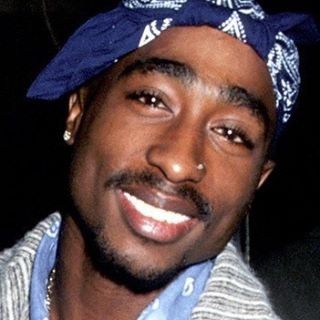A Nevada judge set bail at $750,000 for Duane Davis also known as "Keffe D" in a court hearing Tuesday. Davis stands accused of murder in the killing of hip-hop icon Tupac Shakur in 1996 in Las Vegas.

The former Los Angeles gang leader was granted house arrest ahead of the trial set for June of this year. Court-appointed attorneys for the suspect told the Associated Press after the hearing that they believe Davis will be able to post bail. They had initially requested bail of not more than $100,000. The lawyers argued in a court filing a day before that their client - not witnesses, as prosecutors had said - faced danger. And they say 60-year-old Davis is in poor health after battling cancer, which is in remission, and that he won't flee to avoid trial.
Davis, originally from Compton, California is the only person still alive who was in the car the night shots were fired in the drive-by-shooting that also wounded rap music mogul, Marion "Suge" Knight who is currently serving 28 years in a California prison for an unrelated fatal shooting. Knight is an eyewitness to the Shakur shooting, however, did not testify before the grand jury that indicted Davis ahead of his arrest on Sept. 29. Davis' nephew Orlando Anderson, was the suspected shooter in the case, but he died in a shootout two years after Shakur was killed. Two other suspects, Terry Brown and Deandrae Smith, also died before they were ever charged.
Davis was served a search warrant at his home in mid-July before he was arrested and charged with the murder at the end of Sept. 2023, almost exactly 27 years after Shakur was murdered. Despite police saying Davis was not the triggerman in the killing, they believe he was the leader and "shot caller" of the group that perpetrated the murder. Davis maintains he was given immunity from prosecutors in 2008 by an FBI and Los Angeles police task force investigating the killings of Shakur and rival rapper Christopher Wallace, known as "The Notorious B.I.G." or Biggie Smalls, months later.
His lawyers accused prosecutors of misinterpreting a jail telephone recording and a list of names provided to Davis' family members, and of misreporting to the judge that David posed a threat to the public if he were released.
Per AP NEWS, Davis "never threatened anyone during the phone calls," said Robert Arroyo and Charles Cano, deputy special public defenders. "Furthermore, (prosecutors') interpretation of the use of 'green light' is flat-out wrong." The "green light" reference is from a recording of an October jail call that prosecutors Marc DiGiacomo and Binu Palal provided last month to Clark County District Judge Carli Kierny, who presided over the bail hearing. His lawyers argued Davis and his family were the ones facing potential danger.
"Duane's son was saying he heard there was a greenlight on Duane's family," Davis' attorneys wrote, using his first name. "Duane obviously did not know what his son was talking about."
What Led Prosecutors To Think This?
Prosecutors cited Davis' statements during 2008 police interviews, revelations in a 2019 memoir, and media accounts as compelling evidence indicating his alleged orchestration of the September 1996 shooting. Davis' attorneys argue that his descriptions of Shakur's killing were "done for entertainment purposes and to make money."
A court file obtained by Rolling Stone affirmed, "This caused enough concern that the federal government stepped in and provided resources to at least [one witness] so he could change his residence," the prosecutors wrote, calling the Oct. 9 jail call evidence of "credible threats to witnesses [that] demonstrate both a consciousness of guilt and that defendant poses a danger to the community."
Arroyo refuted the alleged threat his client posed to witnesses and others, "If Duane is so dangerous, and the evidence so overwhelming, why did [police and prosecutors] wait 15 years to arrest Duane for the murder of Tupac Shakur?"
Duane "Keffe D" Davis pleaded not guilty to first-degree murder with the use of a deadly weapon with a gang enhancement in Nov. 2023. Prosecutors later announced they would not seek the death penalty.









